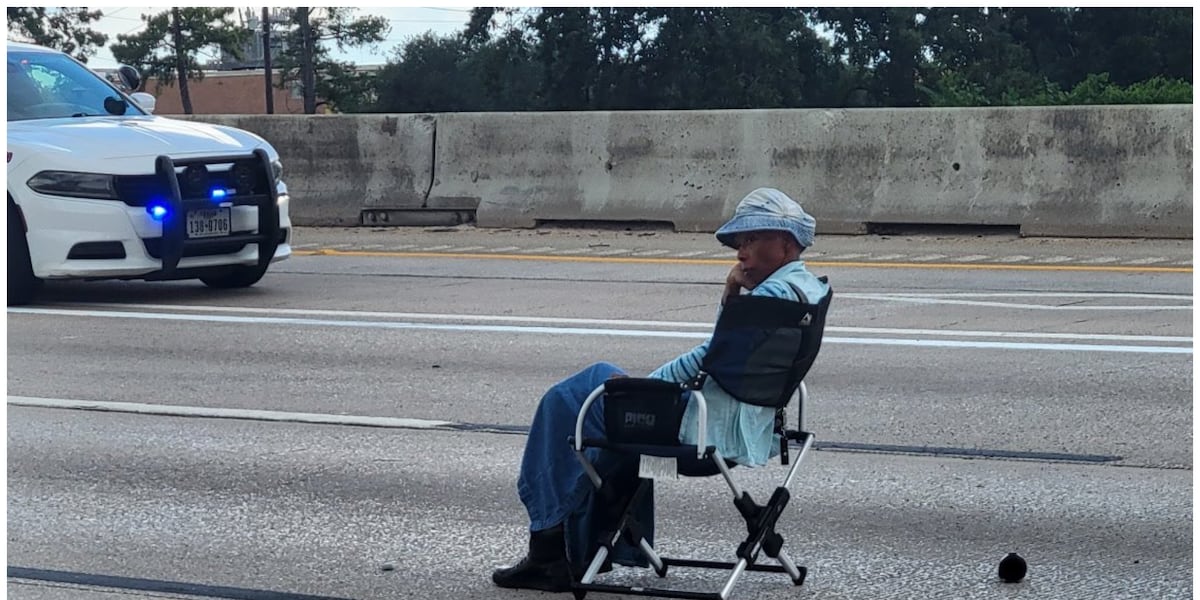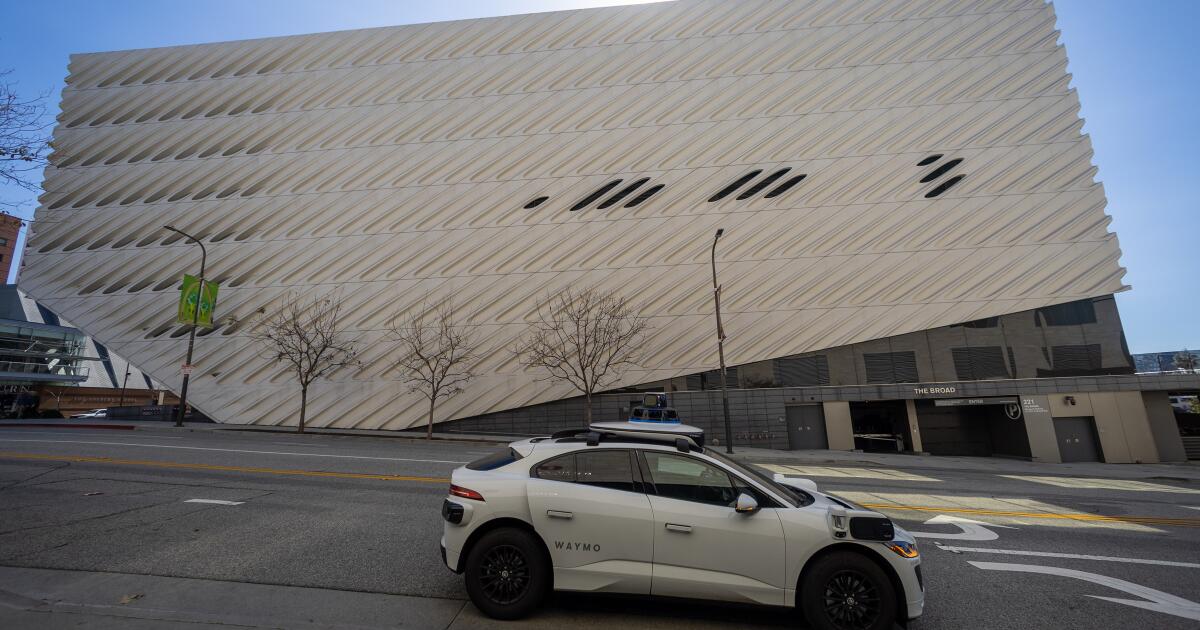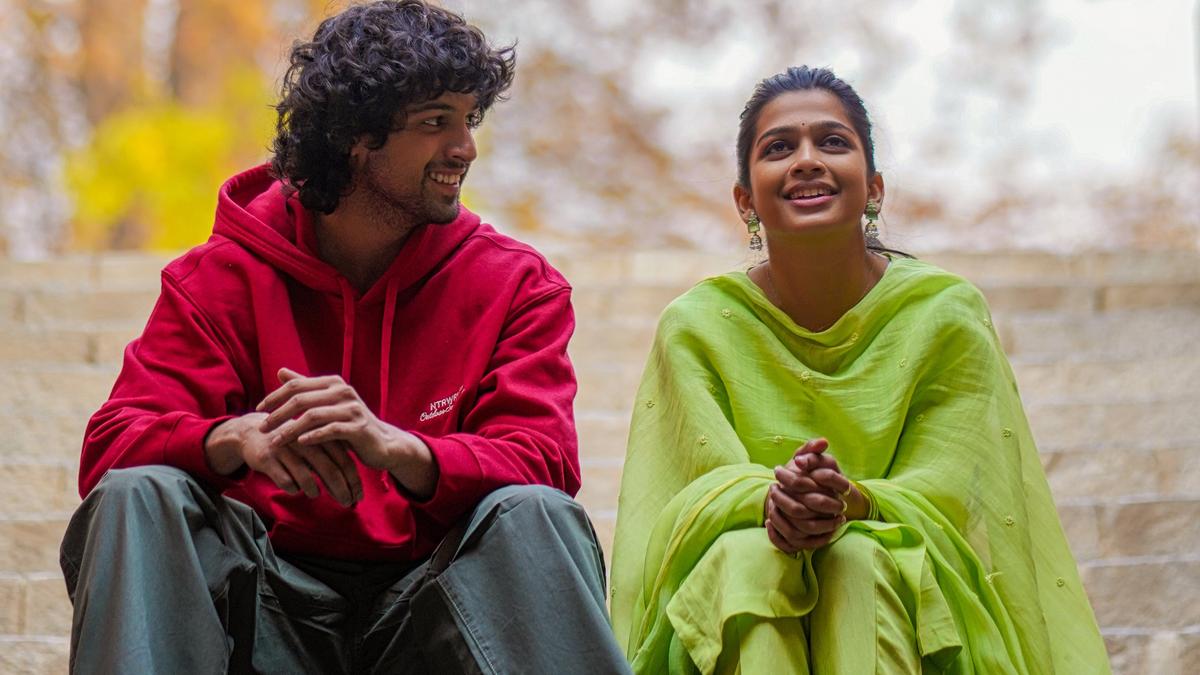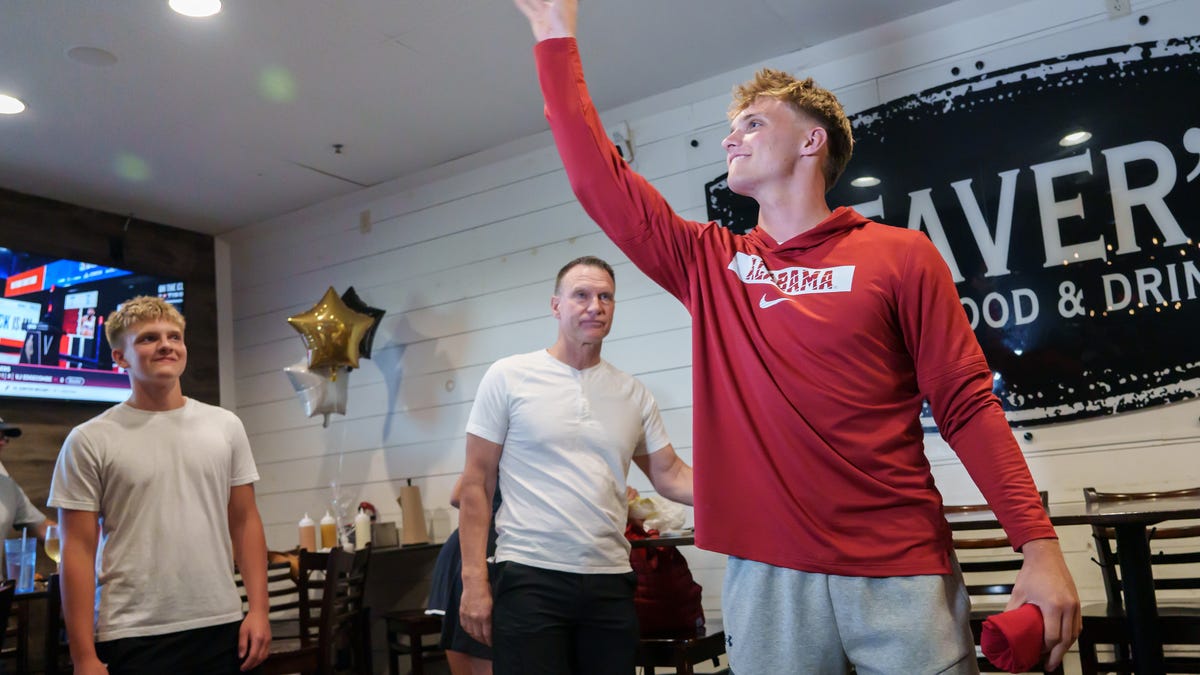Texas
I live in Texas and I'm not surprised so many people are moving here — I'm surprised where they're choosing to settle
In the early 2000s, my parents and I, originally from Liberia, moved to the Dallas-Fort Worth area. We’d spent a few years in Massachusetts, where the winters were chilly and the cost of living was more burdensome.
Texas became a haven for my parents — young immigrants striving to make their mark in a country that, at times, felt overwhelmingly unfamiliar and challenging. To them, the state represented many things: A place they could actually save money and get ahead, but that also carried some of the values of hard work and community they left across the Atlantic.
Some two decades on, my parents have accomplished so much. They’ve sent me and my brother to college, launched their own appliance-repair business, and even constructed their dream home — all in DFW.
Given the success they’ve attained in Texas, it’s no wonder to me that the state continues to draw the interest of so many people. Between 2021 and 2022, Texas gained 670,000 new residents, according to Census Bureau data — the second-most of any state, behind only Florida. Recent transplants to Texas have shared with Business Insider in interviews that their moves were motivated by more affordable home and rent prices, political freedom, a slower pace of life, and more.
As a Texan, it’s unsurprising that these factors have lured hundreds of thousands of people to the state over the past few years. What intrigues me even more is where, exactly, transplants are pursuing the American dream in Texas and how that’s changed since my family touched down on its soil.
P A Thompson/Getty Images
Rather than relocating to the largest cities in the state, newcomers and long-time residents are increasingly opting for places viewed as secondary cities or suburbs — areas like New Braunfels, nestled in the heart of the Texas hill country between San Antonio and Austin, and Katy, situated 30 minutes west of Houston.
Census data that compares Texas’ city populations between 2020 and mid-2022 estimates reveals that smaller spots, including New Braunfels and Katy, saw their populations surge. Meanwhile, major metropolises like Austin, Houston, and Dallas witnessed minimal growth — and sometimes even net population declines.
I set out to figure out why.
Larger Texas cities are losing appeal for some
Many friends and I had aspirations of moving from our small college town to Dallas or Austin — cities that, back then, appeared larger than life to us.
However, years post-graduation, many who ventured to these large cities have either returned to their smaller hometowns or established roots in the suburbs surrounding those dense metropolises.
They’re looking for affordability and a more joyful way of life — ingredients that can be harder to find in bigger Texas cities.
Evan Semones
Take Austin, for example. A surge in new residents driven by a blossoming Big Tech scene and an upswing in remote work nationwide has reshaped its essence. Once known for its laid-back atmosphere and a plethora of mom-and-pop shops, some people now believe the city features too many cookie-cutter buildings, upscale restaurants, and traffic jams that diminish its “small-town” charm. The arrival of transplants with higher incomes has also elevated housing costs, pricing out locals and dissuading prospective homebuyers who once had aspirations of owning in the city.
Each month, the home-listings site Redfin analyzes the number of people in cities across the US who browse for properties within their own city compared to those who house-hunt outside of where they already live. Redfin sees the comparison as an indicator of whether more people are looking to stay or leave a city.
Austin? For the first time on record, Redfin reported in October, it has more people dreaming of a move out.
Homebuyers are drawn to Texas’ smaller cities
The cultural and economic shifts observed in Austin are playing out in large cities all over Texas.
As a result, many homebuyers are seeking out more affordable and down-to-earth secondary cities such as Katy and New Braunfels. Both areas are among the fastest-growing cities in the US, according to census data.
The concept of the American Dream has historically regarded owning a home as a crucial milestone. Over the past few months, I’ve spoken with several homebuyers who said that they had a greater chance of pursuing the homeownership element of the (very pricey) American Dream in Texas — and in secondary cities in particular.
Courtesy of Keyana Darling
In October, I interviewed Keyana Darling, a 29-year-old single mother who moved to Katy earlier this year. Prior to our conversation, Katy — a city west of Houston known for, among other things, great schools — wasn’t really on my radar. It had only caught my attention after hearing it mentioned in Drake’s 2020 pop hit “Desire.”
Darling told me that before moving to Katy, she lived in a high-rise rental apartment in downtown Houston that cost $2,900 a month. Then she became concerned about her family’s safety.
“There were apartment and car break-ins, and the homelessness situation was just crazy,” she said. “I felt like I couldn’t walk my dog outside.”
After visiting a friend in Katy, she felt motivated to move to the city herself, believing that its relatively cheaper real estate offered her a better chance at homeownership than Houston.
“My friend was younger than me, so I thought if she could buy a home there, I could, too,” she said.
Darling was right. In August, she purchased a three-bedroom, two-bathroom home for $324,000.
She told me that moving to Katy not only gave her a chance to build generational wealth for her children, but also provide them with neighbors who feel like family.
“Katy is very diverse, and I actually love it,” Darling said. “Being a Black single mother, the fact that I have so many different neighbors who all come from different backgrounds and races and are genuinely good people is huge.”
Courtesy of Janelle Crossan
Just this week, I caught up with California native Janelle Crossan, a 44-year-old single mother who also opted for smaller-town life in Texas. She chose New Braunfels, a town between Austin and San Antonio best known for its German heritage and the iconic Schlitterbahn Waterpark.
“I realized that a lot of the things that I wanted to get away from in California might also just be big-city things, so I decided to try something new,” she said. “I just want my whole life to be different. I put my brakes down in New Braunfels, and I absolutely love it here.”
Crossan, a divorcée who struggled to make ends meet in the California town of Mesa, was also seeking an affordable place to buy a home and a “cute and nice place to raise kids.” After moving to New Braunfels in 2020, Crossan went on to purchase her first home for $240,000.
“I paid $1,750 for rent in a crappy little apartment in California,” Crossan told Business Insider’s Erin Snodgrass earlier this year. “Now, three years later, my whole payment, including mortgage and property taxes, is $1,800 a month for my three-bedroom house.”
Reviewing all of the evidence, I had my answer.
Glimmers of possibility and opportunity, the same American Dream my parents sought, are now drawing movers to smaller spots, where movers believe that lower costs of living and close-knit communities are more attainable.
Diving into the census data with the help of BI’s economic data editor Andy Kiersz, I saw that the Texas towns and cities with the most population growth are indeed outside big cities. Populations more than doubled in Josephine, Caddo Mills, and Celina, all outside my family’s home of DFW. In Liberty Hill, outside Austin. And in Fulshear, outside Houston.
It’s unsurprising to me that so many Americans are chasing the American dream in Texas. Despite challenges like higher property taxes, divisive politics, and an antiquated energy grid, the state remains a desirable place to live.
Perhaps what’s more interesting, at least to me, is the rise of what could be called Texas’ underdog cities. It highlights just how much things have changed since my parents arrived in Texas to realize their own dreams more than two decades ago.

Texas
Supreme Court sides with Texas’ age verification law for porn sites

The Supreme Court
Samuel Corum/AFP via Getty Images
hide caption
toggle caption
Samuel Corum/AFP via Getty Images

The Supreme Court
Samuel Corum/AFP via Getty Images
The U.S. Supreme Court on Friday upheld a Texas law requiring consumers to provide age verification in order to gain access to commercial websites that provide sexually explicit material. It was the first time that the court has imposed requirements on adult consumers in order to protect minors from having such access.
Free-speech advocates argued that while the law’s goal is to limit minors’ access to online sexually explicit content, it is overly vague and imposes significant burdens on adults’ access to constitutionally protected expression. Lawyers for Texas said in their filing, and during arguments, that the law’s opponents had failed to show a single person whose rights have been “chilled” by it.
By a vote of 6-3 along ideological lines, the court agreed with Texas, saying the law “only incidentally burdens the protected speech of adults.”
The Texas measure, enacted in 2023, was aimed at protecting kids under the age of 18 from exposure to sexually explicit material.
It did that by requiring every user, including adults, to first provide proof, typically via a government-issued identification, that they were at least 18 years old. The statute applies to all websites that contain content that is one-third or more “sexually suggestive” in nature and “harmful to children.”
More Supreme Court decisions from today:
Just what the term “harmful to children” means is debatable because, according to the websites, the term covers any sexually suggestive material, including romance novels and R-rated movies.
The Free Speech Coalition, an adult industry trade association, and several adult industry producers challenged the law in court, contending that it violated the First Amendment guarantee to free speech and expression.

The groups noted, among other things, that while the statute does bar companies from retaining the identifying information, it does not prohibit transfer of that information or impose any other protection from disclosure to protect adults’ privacy. Moreover, the challengers maintained the state’s defense of the statute fell apart in light of the fact that it exempted from the law’s coverage the search engines and social-media platforms that are the principal gateways for minors gaining access to sexually explicit content.
Federal judge David Alan Ezra, a Reagan appointee, initially barred the law from taking effect, on the grounds that it was likely unconstitutional.
But a Fifth Circuit Court of Appeals panel voted 2-to-1 to uphold the law, clearing the way for it to take effect. The appeals court said that because the state justified the law as rationally related to its purpose of protecting children, that is all that is necessary. The so-called rational basis test used by the appeals court means essentially that a law passes muster as long as the legislature had any rational justification.
It is the court’s least rigorous standard, and the challengers maintained that it was far too lax and ignored the impact on adult users.
Texas
Armed woman sitting on folding chair shuts down I-45 during standoff in Spring, Texas

SPRING, Texas (KWTX) – A woman armed with a gun has created a traffic nightmare during a standoff on I-45 South in Spring, Texas, according to the Harris County Precinct 4 Constable’s Office.
The constable said the woman “apparently turned her vehicle directly into the path of an 18-wheeler” and caused a collision.
She reportedly then exited her vehicle and sat down in the main lanes of the interstate.
A trained mental health officer has arrived at the scene. Authorities say the woman is saying she wants her kids who are being held hostage.
There is a heavy police presence on I-45 near Cypresswood Drive and the interstate is shut down.
Avoid the area.
Copyright 2025 KWTX. All rights reserved.
Texas
DOJ ends investigation into Muslim-centered EPIC City project in North Texas

The U.S. Department of Justice has officially closed its investigation into EPIC City, a proposed Muslim-centered community in North Texas.
The project is affiliated with the East Plano Islamic Center (EPIC), one of the largest mosques in the region.
The DOJ’s decision comes after U.S. Sen. John Cornyn raised concerns about potential religious discrimination tied to the development.
Attorney calls probe political
Dan Cogdell, a criminal defense attorney representing both EPIC and the EPIC City organizers, called the investigation politically motivated.
“Several politicians have tried to pervert these so-called investigations for their political benefit,” Cogdell said. “Ultimately, I think it will backfire.”
He added that the DOJ’s decision to drop the case is a win for the project and reaffirmed that the development will move forward.
Community Capital Partners
EPIC City still under state review
EPIC City is planned for 400 acres in Josephine, pending approval from Collin County Commissioners.
The developers, Community Capital Partners, say the community will be open to people of all faiths. However, the project still faces at least three ongoing investigations from state agencies, including the Texas Attorney General’s Office and the Texas Workforce Commission.
“Never in 42 years of practicing criminal defense have I seen the number and absurdity of the accusations lodged here,” Cogdell said. “We will comply fully and completely.”
New law targets religious developments
Last week, Gov. Greg Abbott signed House Bill 4211, which his office says is designed to prevent developments like EPIC City from creating “no-go zones” by restricting land sales or rentals based on religious affiliation.
Despite the bill’s implications, Dan Cogdell, attorney for EPIC City, said the development supports the legislation.
“Anyone is welcome to buy and live there,” Cogdell said. “This is nothing more than a political opportunity for Abbott and others to claim they defeated an evil that never existed.”
CBS News Texas reached out to Rep. Candy Noble, the bill’s author, for comment but has not yet received a response.
In a statement, Andrew Mahaleris, press secretary for Gov. Abbott, said:
“Governor Abbott was proud to sign HB 4211 into law last week to ensure developments like EPIC City are unable to create ‘no-go zones’ by selling or renting land only to individuals who subscribe to a developer’s religious preference. Texas will continue to defend our communities from any threats posed by EPIC City or other entities seeking to create a discriminatory or illegal compound, and we will continue to monitor this proposed development for compliance with all Texas laws.”
Project delayed but still moving forward
EPIC City organizers say they are still in the planning phase and have not yet submitted a permit application to the county. However, they admit the ongoing state investigations have delayed progress by several months.
“Community Capital Partners is committed to building an inclusive community that follows the guidelines of the Fair Housing Act and we are glad the DOJ found that to be true in their investigation,” Cogdell said.
-

 Arizona1 week ago
Arizona1 week agoSuspect in Arizona Rangers' death killed by Missouri troopers
-

 Business1 week ago
Business1 week agoDriverless disruption: Tech titans gird for robotaxi wars with new factory and territories
-

 Business1 week ago
Business1 week agoProtesters are chasing federal agents out of L.A. County hotels: ‘A small victory’
-

 Technology1 week ago
Technology1 week agoSpaceX Starship explodes again, this time on the ground
-

 Technology1 week ago
Technology1 week agoMeta held talks to buy Thinking Machines, Perplexity, and Safe Superintelligence
-

 Technology6 days ago
Technology6 days agoSamsung’s Galaxy Watch 7 has returned to its lowest-ever price
-

 News1 week ago
News1 week agoVideo: Inside Trump’s Shifting Stance on Iran
-

 Movie Reviews1 week ago
Movie Reviews1 week ago‘8 Vasantalu’ movie review: Phanindra Narsetti’s romance drama is ambitious but lacks soul


















